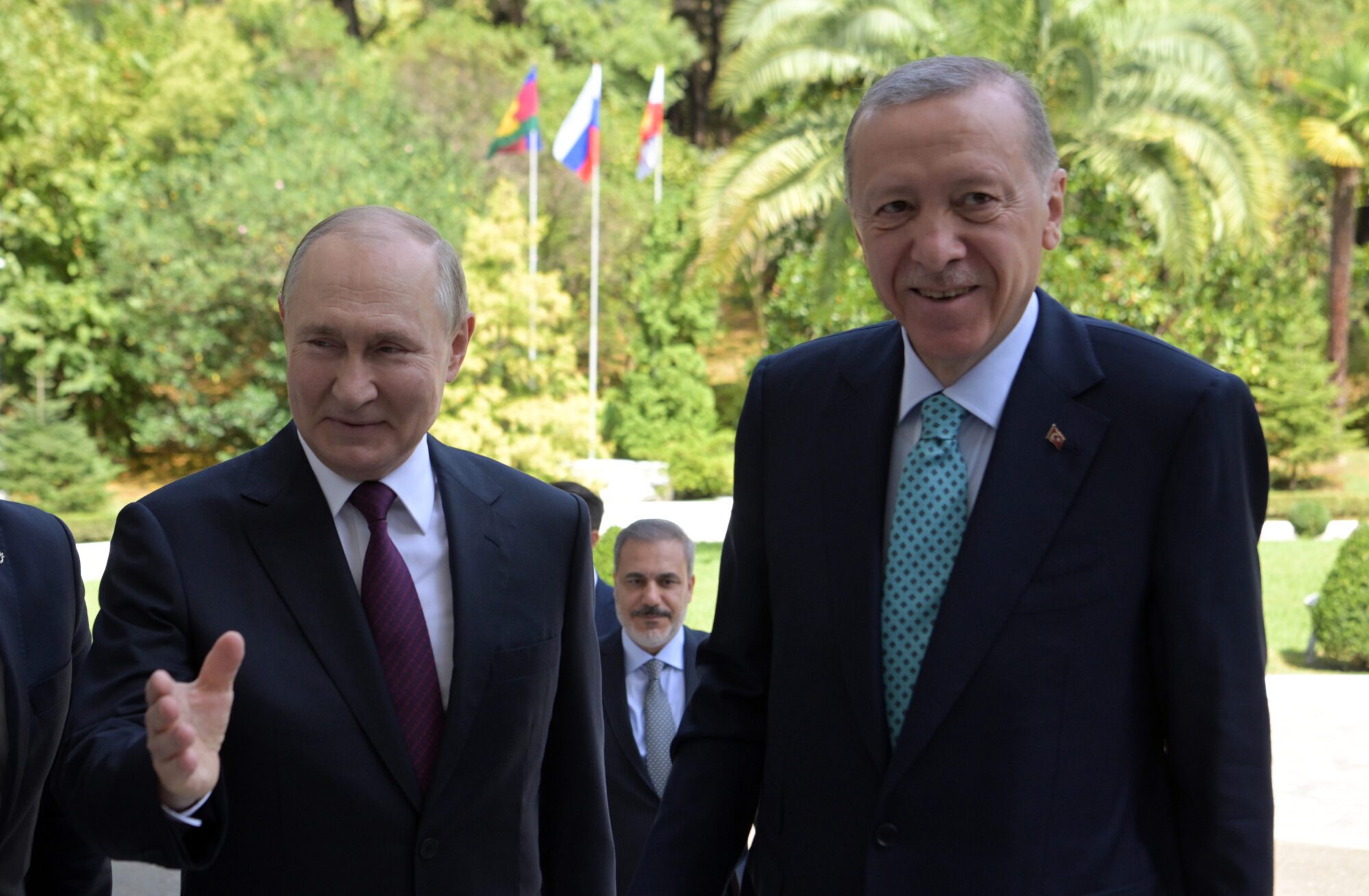
Russian President Vladimir Putin greeting his Turkish counterpart Recep Tayyip Erdogan before their talks in Sochi.
No definitive resolution on easing the transportation of grain to the global south emerged yesterday from talks between Turkish President Recep Tayyip Erdoğan and Russian President Vladimir Putin.
The two leaders met on September 4th in the Russian resort town of Sochi to revive the expired grain deal that, for nearly a year, had allowed Ukraine to export grain safely through the Black Sea. Erdoğan said that Turkey and the United Nations have worked on a new package of suggestions to ease Russian concerns. Putin complained that the West had failed to fulfil its commitments under the agreement, and confirmed that Russia would only return to the deal, “within the nearest days,” if the West stopped restricting Russian agricultural exports from reaching global markets.
Ukraine and Russia are both major global suppliers of wheat, barley, sunflower oil, and other affordable food products that developing nations rely on. The grain deal, which came into force last July, brokered by Turkey and the United Nations and co-signed by Russia and Ukraine, allowed millions of tonnes of grain and other foodstuffs to leave Ukraine’s ports despite the ongoing war.
Russia pulled out of the deal this July, complaining that sanctions on Russia’s logistical and financial sectors, which harm its grain and fertiliser exports, had still not been lifted. “The West continues to block the supply of grain and fertilisers from the Russian Federation to world markets,” Putin said. One of Moscow’s main demands is for the Russian Agricultural Bank to be reconnected to the SWIFT international payments system. The EU terminated the bank’s access to SWIFT in June 2022, in response to Russia’s invasion of Ukraine.
Putin on Monday said that the West had cheated Russia over the deal, claiming that more than 70% of the grain exported under the deal was sold to rich countries. During the talk, Putin side-stepped blame for cutting off grain supplies to poor countries by revealing his intention to ship free grain—up to 50,000 tonnes of grain each— to six African countries: Burkina Faso, Zimbabwe, Mali, Somalia, the Central African Republic, and Eritrea.
At the end of August, UN Secretary-General António Guterres sent Russian Foreign Minister Sergey Lavrov “concrete proposals” aimed at getting Russian exports to global markets and allowing the resumption of the Black Sea initiative. But Lavrov said Moscow wasn’t satisfied with the letter.
Termination of the Black Sea grain deal threatens food security for poor nations in Africa and it puts pressure on the economies of several Central European countries. Without the deal, Ukraine became almost wholly dependent upon land export routes to its West. The cheap grain added a burden to the EU’s eastern member states that were already struggling with their domestic markets being flooded. In May, the EU responded by allowing five countries close to Ukraine—Bulgaria, Hungary, Poland, Romania, and Slovakia—to ban domestic sales of Ukrainian wheat, maize, and oilseeds until September 15th, while allowing their transit through these nations’ territories.
Polish Agriculture Minister Robert Telus said on Sunday that Poland will extend the ban on imports of Ukrainian grain after the deadline, “as we are convinced that this ban is in our interest.” Hungary also wants the ban to be extended, with Minister Gergely Gulyás, head of the prime minister’s offices, saying that Hungary was ready to reimpose a national import ban.
